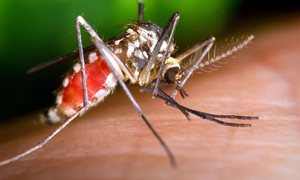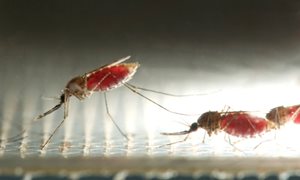
Invasive pulmonary aspergillosis (IPA) is increasingly reported in patients with severe coronavirus disease 2019 (COVID-19) admitted to the intensive care unit (ICU). Therefore, Paul Verweij, theme Infectious diseases and global health, and colleagues set a goal to develop practical guidelines for the diagnosis and management of COVID-19 associated pulmonary aspergillosis (CAPA). This taskforce report is recently published in Intensive Care Medicine.
Methods
A group of 28 international experts reviewed current insights in the epidemiology, diagnosis and management of CAPA and developed recommendations using GRADE methodology.
Results
The prevalence of CAPA varied between 0 and 33%, which may be partly due to variable case definitions, but likely represents true variation. Bronchoscopy and bronchoalveolar lavage (BAL) remain the cornerstone of CAPA diagnosis, allowing for diagnosis of invasive Aspergillus tracheobronchitis and collection of the best validated specimen for Aspergillus diagnostics. Most patients diagnosed with CAPA lack traditional host factors, but pre-existing structural lung disease and immunomodulating therapy may predispose to CAPA risk. Computed tomography seems to be of limited value to rule CAPA in or out, and serum biomarkers are negative in 85% of patients. As the mortality of CAPA is around 50%, antifungal therapy is recommended for BAL positive patients, but the decision to treat depends on the patients' clinical condition and the institutional incidence of CAPA. We recommend against routinely stopping concomitant corticosteroid or IL-6 blocking therapy in CAPA patients.
Conclusion
CAPA is a complex disease involving a continuum of respiratory colonization, tissue invasion and angioinvasive disease. Knowledge gaps including true epidemiology, optimal diagnostic work-up, management strategies and role of host-directed therapy require further study.
Related news items

Grants for research on magnesium deficiency and malaria Vidis for Felix Hol and Jeroen de Baaij
1 July 2022 Radboudumc researchers Jeroen de Baaij and Felix Hol both receive an NWO Vidi grant for their research, respectively on magnesium deficiency in type 2 diabetes and on malaria. go to page
Field research on malaria vaccine offers unexpected surprise
23 May 2022Field research on the effectiveness of a malaria vaccine, came up with unexpected results for an international group of researchers including Benjamin Mordmüller of Radboudumc. The vaccine evokes a broader response against malaria proteins than there are in the vaccine.
go to page
Rubicon grants awarded to three RIMLS researchers
19 April 2022Three researchers have received Rubicon funding from NWO/ZonMw. This will enable Elke Muntjewerff, Laura de Vries and Laurens van de Wiel to do research at a foreign research institute for the next two years.
go to page


